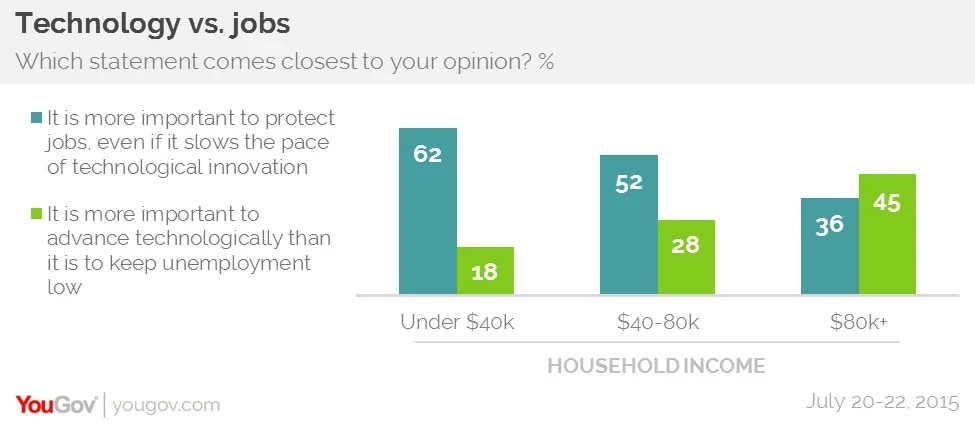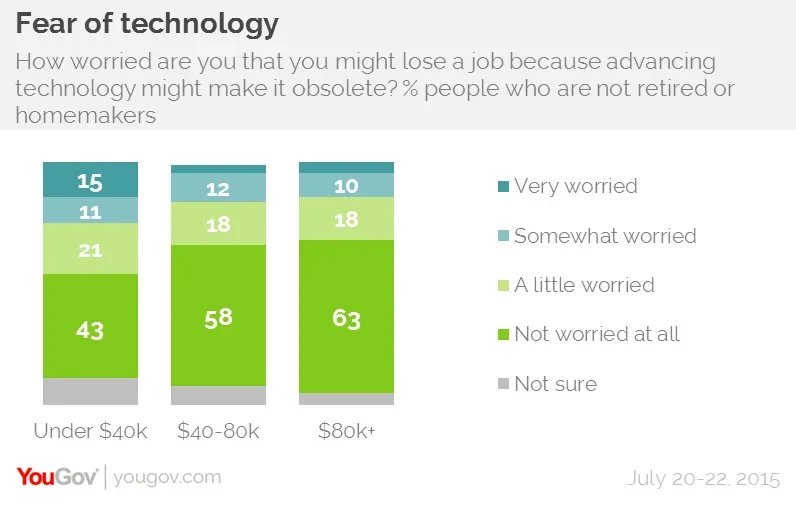Wealthier Americans are less worried about losing a job due to technology and are much more likely to think that technological progress is more important than preventing unemployment
New York City's plan to put the brakes on Uber's rapid expansion took a hit, at least temporarily, after the Mayor agreed to hold off on imposing a cap on the number of Uber drivers in order to conduct a study into the impact of Uber. Uber has transformed the traditional taxi industry in many cities across the country, making taxi services more convenient for customers but also putting enormous financial pressure on taxi drivers who often had to take out large loans in order to purchase the medallions that allowed them to drive taxis - medallions that Uber drivers have not bought.
The latest research from YouGov shows that, in principle, most Americans (52%) think that it is more important to protect jobs, even if this protection slows the pace of innovation. 26% of Americans think that technological progress is more important than keeping unemployment low.
Americans from lower income households are much more likely than wealthier Americans to thing that jobs are more important than technology. 62% of people in households with incomes under $40,000 and 52% of people in households with incomes between $40,000 and $80,000 think that protecting jobs should be the main priority. In households with incomes over $80,000, however, 45% think that technological progress is more important than protecting jobs (36%).

Americans on the lowest incomes are the most likely to worry about losing a job because technology makes it obsolete. 26% of people in households with incomes under $40,000 are at least 'somewhat worried' that they may lose a job because of progress, compared to 15% of people in households with incomes over $80,000.









